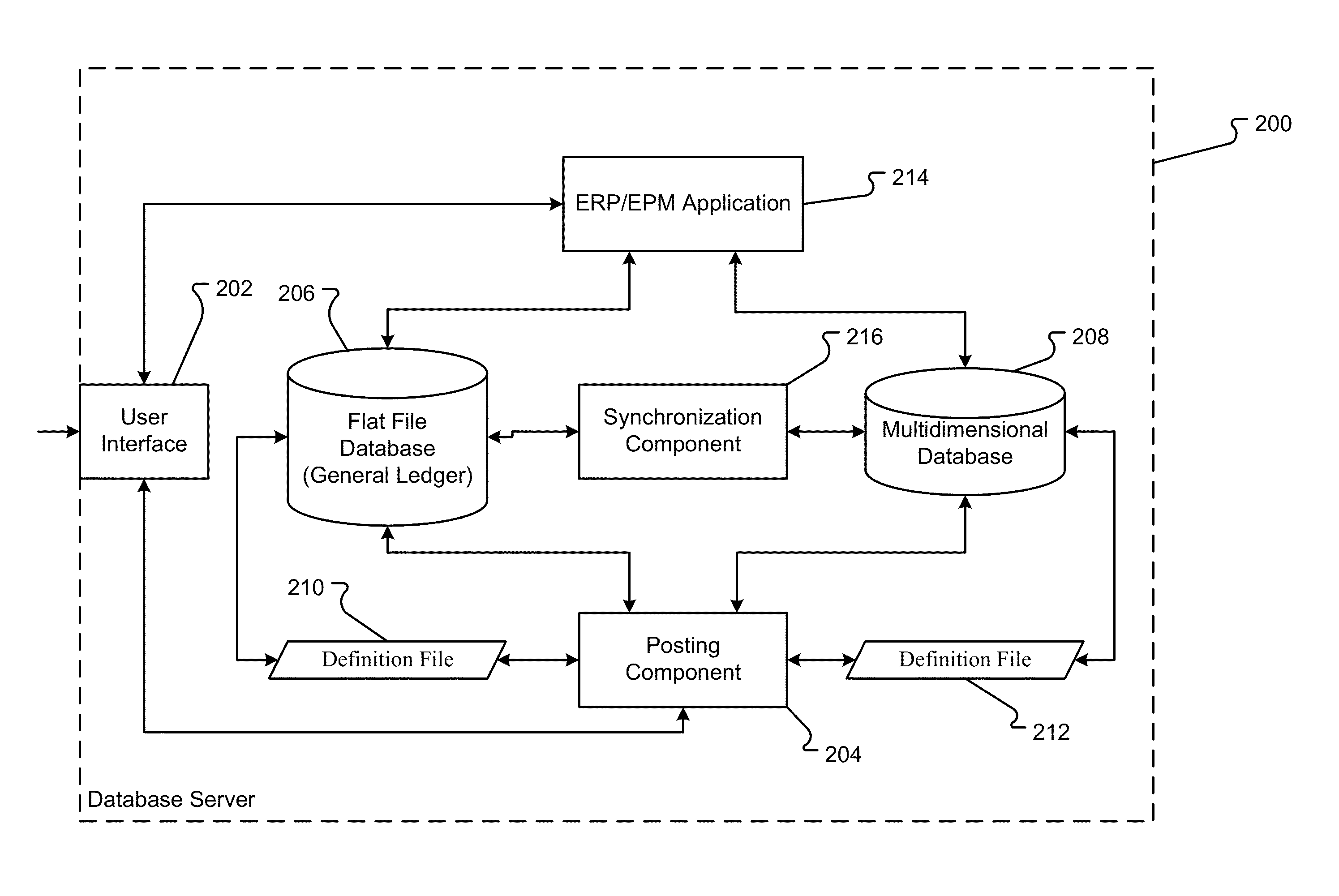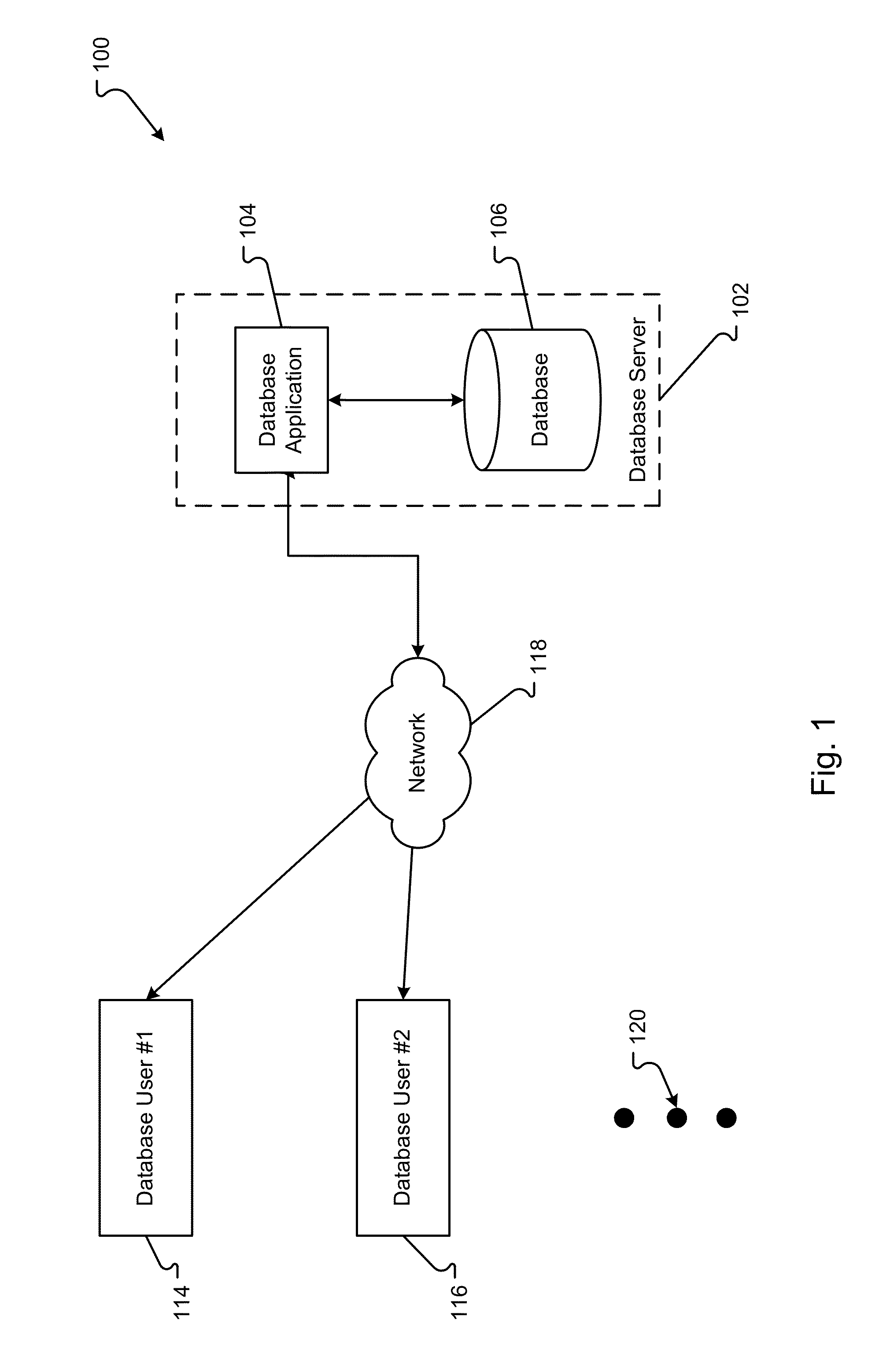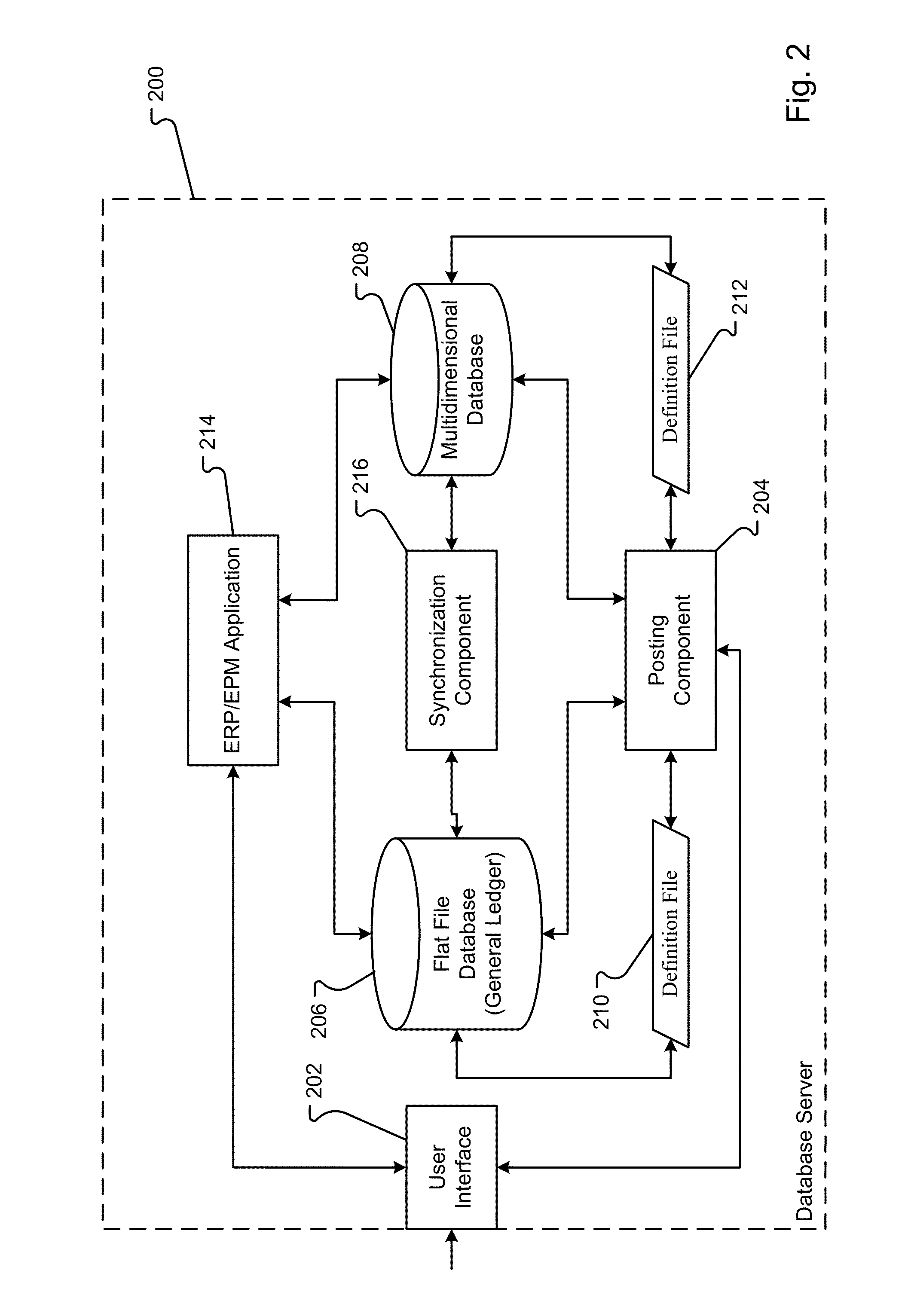[0012]The embodiments presented herein provide systems, methods, and data structures combining a ledger and a multidimensional database. The ledger and multidimensional database are characterized with metadata dimensions that map the ledger to the multidimensional database. After mapping, data can be received into the ledger. A synchronization of the data copies the data automatically to the multidimensional database. Thus, there is no manual copying of data between the ledger and the database. Further, the latency between the ledger and database is minimal, ensuring accurate analysis even contemporaneous with the input of the data.
[0014]Embodiments include a unique reporting platform that is natively built on top of a multidimensional data model. The multidimensional data model is seamlessly embedded with the general ledger. At the moment users create a chart of accounts or subsequently modify a date-effective hierarchy, such as adding a new cost center, the corresponding multidimensional data model is created and updated at the same time. As transactions are posted, the balances are also updated simultaneously and pre-aggregated at every possible summarization level, making reports, online queries and multidimensional analysis extremely fast. By embedding online analytical processing (OLAP) into the online transactional processing (OLTP) system, large quantities of data may be stored in such a way that it can be accessed and analyzed quickly. Users may quickly analyze data from different perspectives from the same system where transactions are entered and generate financial and management reports. All reports and queries are based on the same balances to ensure consistency between the transaction processing and analytical processing portions of the system.
[0015]In an embodiment, solutions provide an integrated aggregated Business Intelligence (BI) data in a single system along with OLAP data. A single process performs transactional processing and also maintains the aggregated BI data. According to one embodiment, when a transaction is processed in the general ledger, it updates both multidimensional database cubes and general ledger relational tables in a single process. This provides BI information that is perfectly synchronized with the OLAP data. Embodiments provide instantaneous access to live BI data, and enable the general ledger to automatically update the general ledger aggregated BI data in real time. This removes the need for a costly data warehouse that is built and maintained by each customer and allows users to have access to live data in both the general ledger (for transactions) and the multidimensional database (for reporting).
[0017]In an embodiment, when a chart of accounts is created or changes are made to the chart of account values, a customer can run a separate process to update the applicable cubes. If the customer does not run or schedule the process, the process may automatically run and update the cube for new values if a transaction (journal entry) is posted to that new value. By maintaining an integrated balances cube with a single process, embodiments provide added efficiency, because users are not required to create a separate data warehouse solution with custom processes. Embodiments enable the general ledger balance cubes to be automatically updated with data from the general ledger using standard processes for new or changed chart of account values and hierarchies.
[0018]In an embodiment cubes are created for analytic balances in a OLAP system in response to determining that ledgers have been created in an OLTP system. The ledger setup user interface in an embodiment is fully integrated to create a balances cube, so that when the ledger is created, a balances cube will also be created. There is no need to create a customized data warehouse solution, which would require custom cube creation. The automatic cube creation process enables the general ledger to seamlessly initiate the general ledger balances cube, and begin general ledger processing, which is also fully integrated with the balances cubes. As a result, a user that posts a journal entry to the general ledger is able to run a report using the ledger balances cube and instantly retrieve updated results that take the latest journal entry into consideration.
[0020]In an embodiment, users can manage which hierarchies, versions and start / end periods to aggregate. In addition, users may be able to publish hierarchy changes from a UI or a schedulable program at a time that best fits the needs for their organization. The ability to schedule hierarchy changes is important because such changes cause cube downtime such that posting journal entries cannot occur at the same time. In addition, because the multidimensional database since the multidimensional database may not handle hierarchy versions in embodiments, the number of hierarchies could potentially be increased, and therefore, each version may be represented as a separate hierarchy in the multidimensional database.
 Login to View More
Login to View More  Login to View More
Login to View More 


